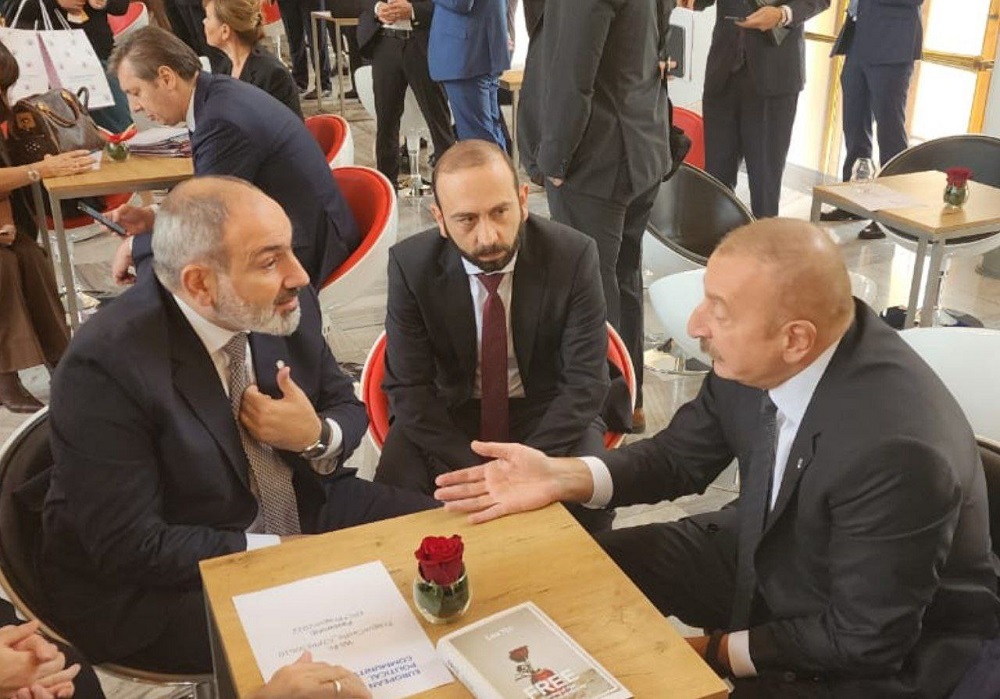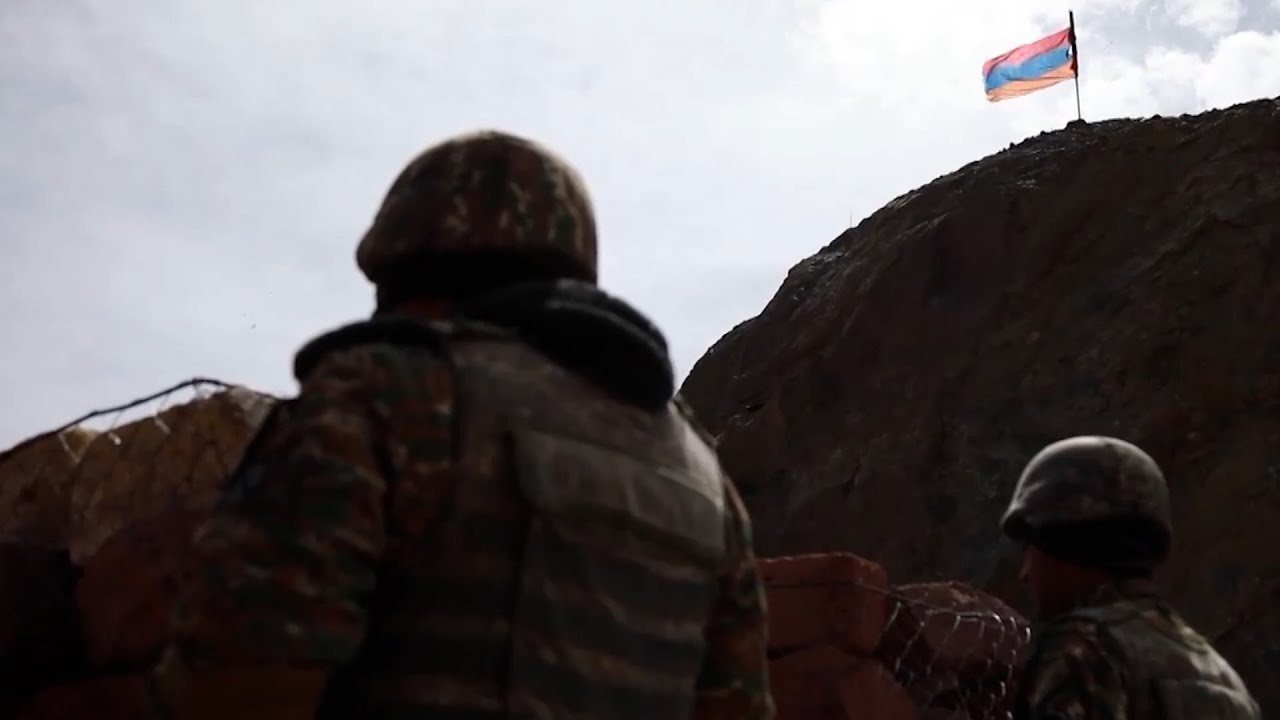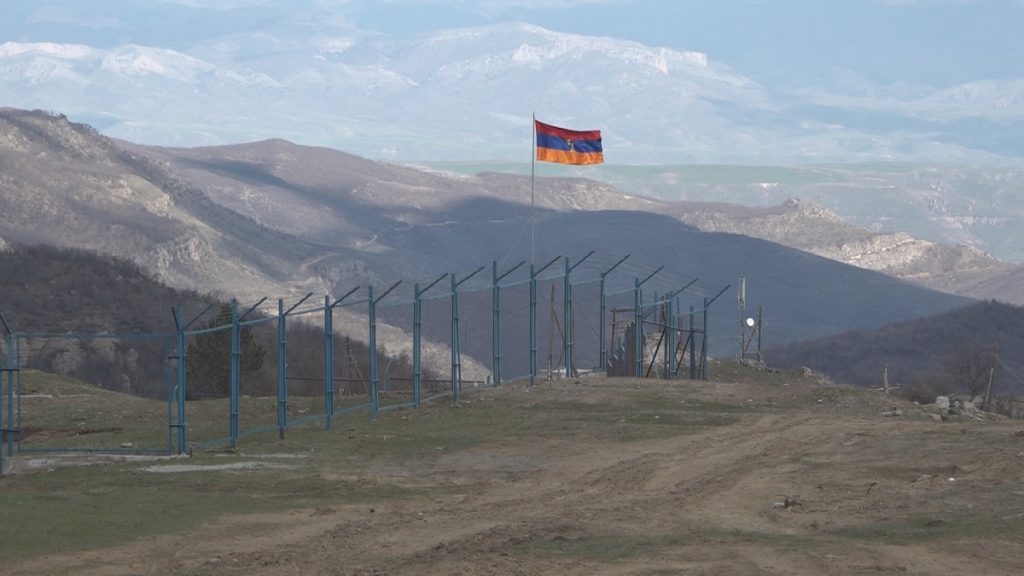“We expect only constructiveness from Azerbaijan” – Pashinyan
Pashinyan’s speech in Astana
“In the context of Armenian-Azerbaijani relations, the role of the CIS is also important,” Armenian Prime Minister Nikol Pashinyan said in Astana during a meeting of Commonwealth of Independent States leaders.
The CIS includes Russia, Belarus, Armenia, Azerbaijan, Kazakhstan, Kyrgyzstan, Tajikistan, Uzbekistan, Moldova.
In his speech, the prime minister raised all the most pressing issues pertaining to relations with Azerbaijan, including demarcation and delimitation, unblocking regional roads, and the return of Armenian prisoners. Pashinyan stressed that in order to resolve all issues, “the only thing we expect from Azerbaijan is constructiveness.”
The main points of the prime minister’s speech.
“The risk of new aggression from Azerbaijan remains very high”
Pashinyan stated that “Azerbaijan has intentions to occupy more Armenian territory”:
“The risk of new aggression from Azerbaijan remains very high, especially given that Azerbaijan continues to consistently violate the ceasefire, trying to attribute its provocative actions to Armenia.”
Another factor in further escalation could be “the inadequate response of regional security organizations to the current situation, which raised very serious questions in the Armenian society.”
Pashinyan means the invasion of Armenia by the Azerbaijani armed forces on September 13-14. By the “inadequate response” of regional security organizations, he means the inaction of the CSTO military bloc. Armenia has twice unsuccessfully applied to this organization for help as one of the member countries.
The number of victims and missing from Armenia as a result of the two-day war exceeds 210 people. Three dead and two missing are civilians. 293 soldiers and 8 civilians were injured.
“Does the CIS have borders?”
Pashinyan told the meeting participants that the process of normalizing relations between Armenia and Azerbaijan is underway. In this process, the work of the commissions on delimitation and border security is important. According to the prime minister, on October 6 at a meeting with the President of Azerbaijan in Prague, an agreement was reached that in the process of delimitation, the commissions would “rely on the fundamental documents of the CIS, according to which the former administrative borders of the Soviet republics became state borders between already independent countries, including between Armenia and Azerbaijan”.
Thus, he asked the leaders of the CIS countries:
“Do the CIS member states respect the borders recognized in 1991 as the founding documents of the CIS?”
According to Pashinyan, this issue has become “especially acute due to the recent military aggression of Azerbaijan against Armenia.”
Obviously, the Prime Minister of Armenia raised this issue in Astana, since the CIS also includes countries that are allies of Armenia in the CSTO military bloc (RF, Belarus, Kyrgyzstan, Kazakhstan, Tajikistan). The Armenian authorities have twice applied to the organization for military assistance. First in May 2021, when the Azerbaijani Armed Forces invaded the sovereign territory of the country for the first time, then in September 2022. However, the organization took no action to protect its ally. The only explanation on the part of the CSTO was that they could not react, since the delimitation of the Armenian-Azerbaijani border had not been carried out.
“If we rely on interpretations according to which there are no borders between the CIS countries, since these borders are not delimited, this means that the area of responsibility of the CSTO is not defined, that is, it does not exist. And this blurs the functionality of the CSTO,” Pashinyan said.
The prime minister stressed that a positive answer to the question of recognizing borders is very important “for stability and security in the CIS.”
“Baku abuses the issue of repatriation of prisoners of war”
Pashinyan said that he has been observing this situation since November 2020, from the moment the tripartite statement on the cessation of hostilities in Karabakh was signed. According to him, the Azerbaijani authorities are trying to achieve “political benefits” in this way.
The prime minister repeated that, according to the tripartite statement, all prisoners were to be exchanged immediately, which Baku initially refused, tying the release of prisoners to the issuance of maps of minefields.
Pashinyan emphasized that Armenia has already provided Azerbaijan with “all the minefield maps it has” and does not have “the best and most accurate maps that it has left for itself.”
“After receiving all maps of minefields, Azerbaijan stated that the accuracy of these maps is only 25%. Armenia expressed its readiness to check this statement with the involvement of international experts,” he added.
According to the prime minister, after receiving the maps, Azerbaijan made the return of captured and other detained Armenians contingent on the clarification of the fate of those missing inthe first Nagorno-Karabakh war.
After the first Karabakh war, 777 people are considered missing from Armenia, after the second – 217 people, of which 196 are military personnel, 21 are civilians.
“During our meetings at the beginning of this year, Armenia expressed its readiness for full cooperation on the entire spectrum of the problem of the missing and has already unilaterally handed over several maps of burials, and after the 44-day war, more than a hundred remains of the victims of the First Nagorno-Karabakh War”, Pashinyan said.
He stressed that Azerbaijan had rejected proposals for cooperation in humanitarian issues for thirty years:
“Azerbaijan remembered its missing citizens or mines only after the aggression against Nagorno-Karabakh and after the entire civilized world began to talk about war crimes committed by the Azerbaijani military, or about Armenian prisoners of war illegally held in Azerbaijan as hostages. Without going into details, only this fact clearly shows the true intentions of Azerbaijan.”
“Attempts to give the situation a religious context are unacceptable”
The Prime Minister recalled that Armenia has very close relations with many Muslim countries.
“A very striking example of this is that most of our allies in the CSTO are Muslim countries. We have very close and close relations with Iran, with many Arab countries, and the Nagorno-Karabakh problem has never had any religious foundations,” he stressed.
“Mining is our right”
Continuing to respond to Ilham Aliyev’s statements made at the same meeting of the CIS Council of Heads of State, Pashinyan stated:
“As for mining, this takes place completely and entirely on the sovereign territory of the Republic of Armenia. It is our right to take some security measures to protect the territorial integrity of our country.”
“Exaggerating the “corridor theme” is sabotage”
Pashinyan called the Azerbaijani authorities’ demand for a “corridor” through Armenia for a road with Nakhichevan “distortion and sabotage of the implementation of the tripartite statement of November 9, 2020”. He recalled that the document mentions only one corridor – Lachin, which connected Armenia with Nagorno-Karabakh. Drawing parallels with this corridor, he says, is manipulation.
The Prime Minister reiterated that Yerevan is ready to open all roads within the framework of the document, which means “they must operate under the full sovereignty of the countries through which they pass.” He said that Yerevan is ready to agree with Baku on the construction of new roads, and in general, Armenia is ready to take steps to establish peace and stability in the region.
Pashinyan’s speech in Astana





















